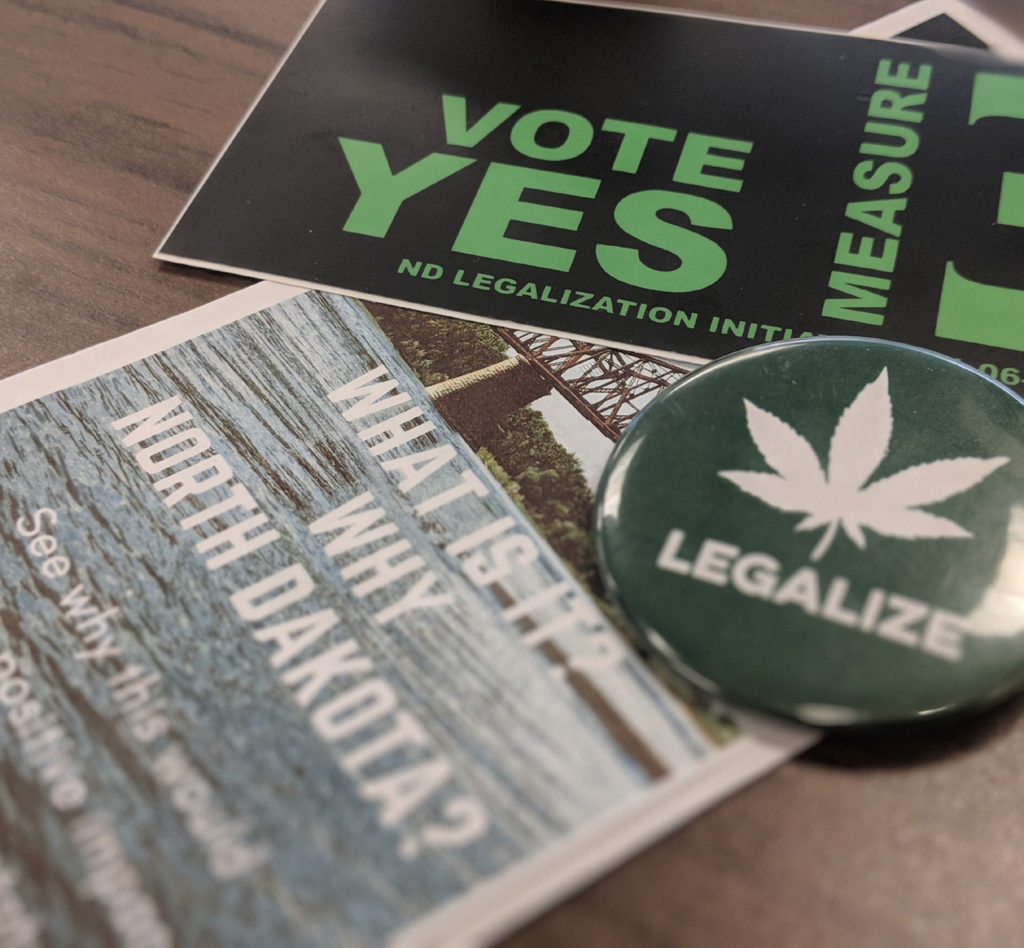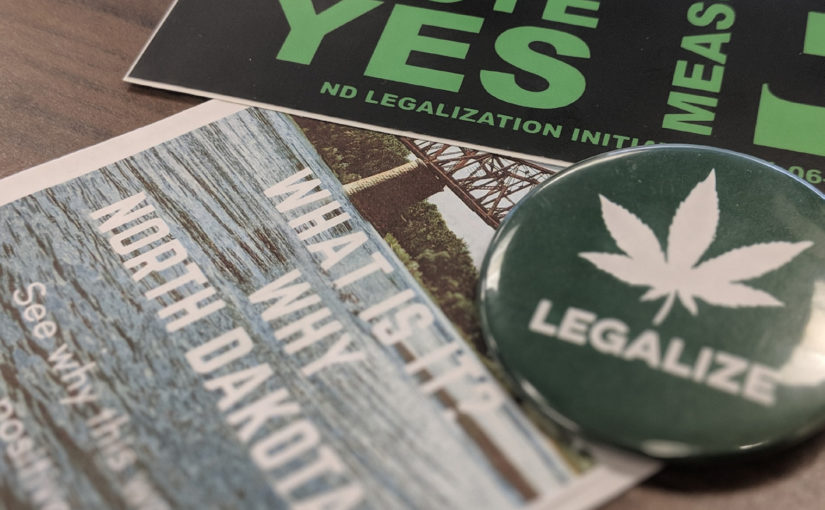
Voting on November 6 on Measure 3 is your right.
David Owen, originally from Ashton, Maryland, has lived in North Dakota for six years. Throughout those six years, he has been a part of advocating for marijuana legalization for four of them, starting with him sponsoring the original recreational bill in 2016 to now being the founder and chairman of Legalize ND since December 2017.
Measure 3 is on the ballot for the midterm election on Nov. 6. The measure affects the legalization of marijuana. Through this legalization, it would prohibit any prosecution against someone over the age of 21 if it is non-violent possession.
Miranda Stambler (MS): Why is Measure 3 so important to you?
David Owen (DO): I’m 25, and I know a lot of people. When I was growing up, one guy, a friend of mine, wanted to join the military – didn’t come from a very wealthy family, worked hard, got through school, wanted to join the Army. He was at a party one night; it got busted, and it was argued that there was marijuana possession at the party. I believe he got charged with paraphernalia because I think he had a pipe at the time. I don’t know the exact specifics, (but) he can’t join the Army. He can’t go to school for college, no one will give him a student loan, he can’t better himself, he’s stuck working a crappy 9-to-5 job last time I talked to him and he’s just stuck because of either petty possession or possession of paraphernalia.
That story’s not unique. There are hundreds of kids at (University of North Dakota) alone whose lives are completely ruined by a marijuana possession charge.
I know another person; he’s in his 30s now; he’s a firefighter, so he goes out and fights the wildfires in the western part of North Dakota. He has been, basically, denied promotion numerous times due to his marijuana record. For the longest time, when him and his wife were married, they couldn’t live in the same apartment because he was not allowed to be a co-signer, but he was (also) not allowed to be on the lease and she was not allowed to have him in the apartment because of the possession misdemeanor of less than a gram of marijuana.
This destroys your entire life. For something that is, again, safer than alcohol, and let’s compare a DUI charge. You can still get an apartment, still get a job, in many cases you can still get student loans, you can better yourself, and a DUI — you could kill somebody — and this really bothers me.
MS: Why do you think you and others support it?
DO: This is not a vote on whether or not you support personal use of marijuana. The question is, do you support the government having the right to lock up people and utterly destroy their lives for a substance that is safer than alcohol?
People support this because it bends the failed policies of prohibition, which lock up thousands of people and give them an economic death sentence, because it allows them to get their medicine on Dec. 6 when it goes into effect, rather than them being indefinitely delayed by the legislature, and because it’s good for the economy and it’s good for farmers.
MS: What’s your history with marijuana?
DO: I don’t use the product because I don’t want to go to prison. I don’t use the product. I’ve never used the product, and, honestly, after it’s legal, I probably won’t use the product. I don’t intend to.
“From the day you get the charge (of marijuana possession) to the day you die, it sticks with you and it destroys your life.”
-David Owen
MS: What was the writing process of Measure 3 like?
DO: Measure 3 starts out after the 2016 failure of recreational (marijuana) to make the ballot. We spend about six months drafting, we ship it out to attorneys across the country, that we knew were sympathetic, get them to review it, fix some things they said were problems, next the Secretary of State by December and then finally get approved for circulation on the 15th.
So we spent nine months drafting the bill.
MS: What do you think made you qualified for drafting the bill?
DO: In all honesty, we set the goals and then we talk to the attorneys, and the attorneys confirmed that the bill was well written and that it accomplished the goals. Our qualifications in terms of writing it, we were concerned North Dakotans who wanted marijuana to be legalized, and we didn’t want what happened to medical (marijuana) to happen again. We also wanted to include sealing of records, and that’s when we kind of shipped it out to the attorneys to have them look it over, have them fix it, give their input and that’s how it got to the state it was in.
“Marijuana is not a red or blue issue. Marijuana is an individual freedom issue. It’s a person liberties issue – I think this bill and this election will prove that.”
-David Owen
MS: What do you say to people who say the measure is too vague and poorly drafted?
DO: The people who say that it’s vague are really saying that they don’t want to treat the ballot incentive process how it’s supposed to work because the single largest complaint about medical marijuana (measure) was it was too hyper specific, it did not give the legislators the ability to work with and modify the bill for the long term health of North Dakota and long term health of the bill.
MS: How do you think Canada’s legalization will affect Measure 3 in North Dakota?
DO: I think what people are seeing is the sky is not falling, there’s no disasters, crime is not skyrocketing and if you go to Canada this week, there will be very little difference than if you went to Canada three weeks ago.
